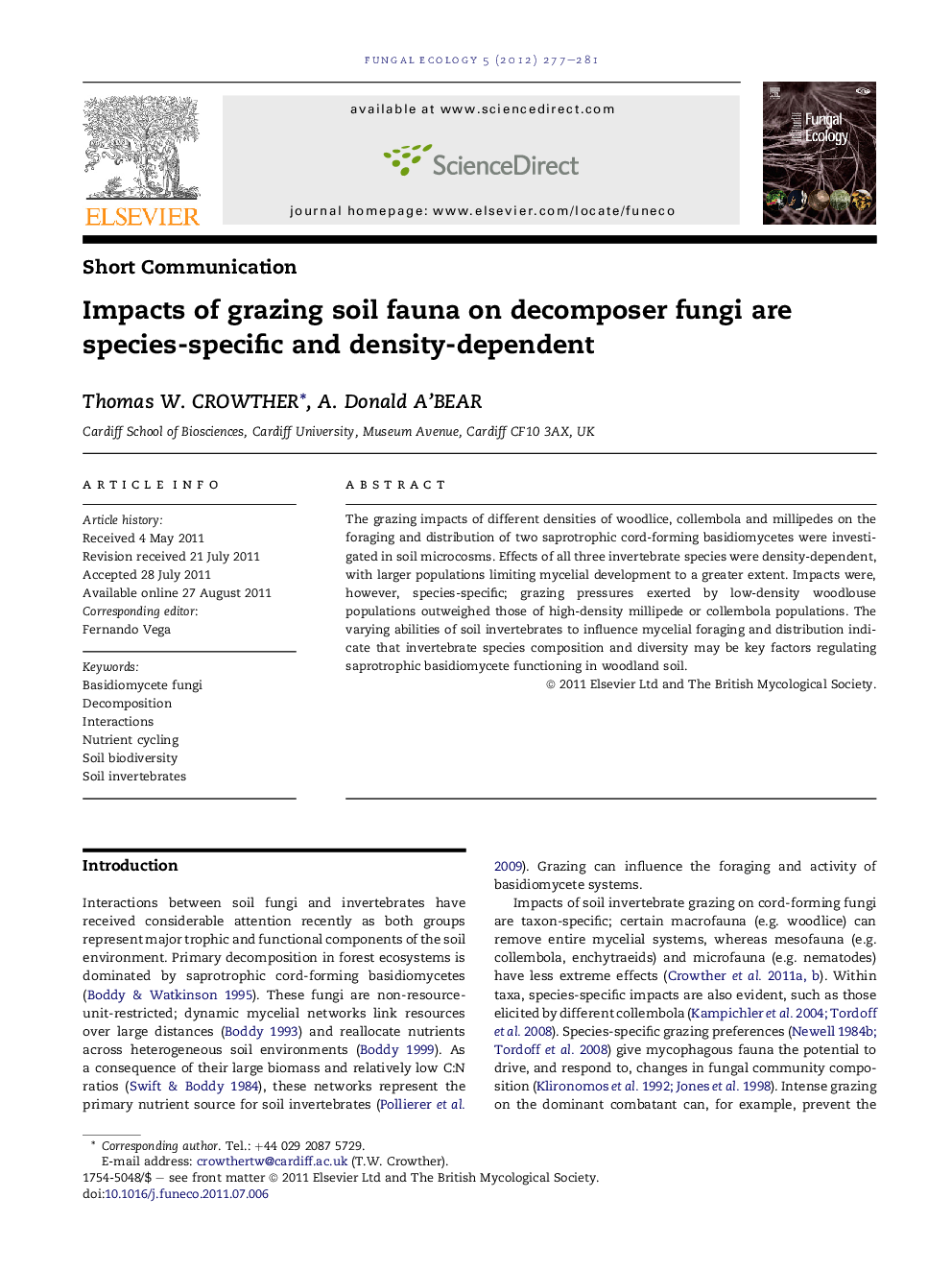| Article ID | Journal | Published Year | Pages | File Type |
|---|---|---|---|---|
| 10876840 | Fungal Ecology | 2012 | 5 Pages |
Abstract
The grazing impacts of different densities of woodlice, collembola and millipedes on the foraging and distribution of two saprotrophic cord-forming basidiomycetes were investigated in soil microcosms. Effects of all three invertebrate species were density-dependent, with larger populations limiting mycelial development to a greater extent. Impacts were, however, species-specific; grazing pressures exerted by low-density woodlouse populations outweighed those of high-density millipede or collembola populations. The varying abilities of soil invertebrates to influence mycelial foraging and distribution indicate that invertebrate species composition and diversity may be key factors regulating saprotrophic basidiomycete functioning in woodland soil.
Keywords
Related Topics
Life Sciences
Agricultural and Biological Sciences
Ecology, Evolution, Behavior and Systematics
Authors
Thomas W. Crowther, A. Donald A'Bear,
